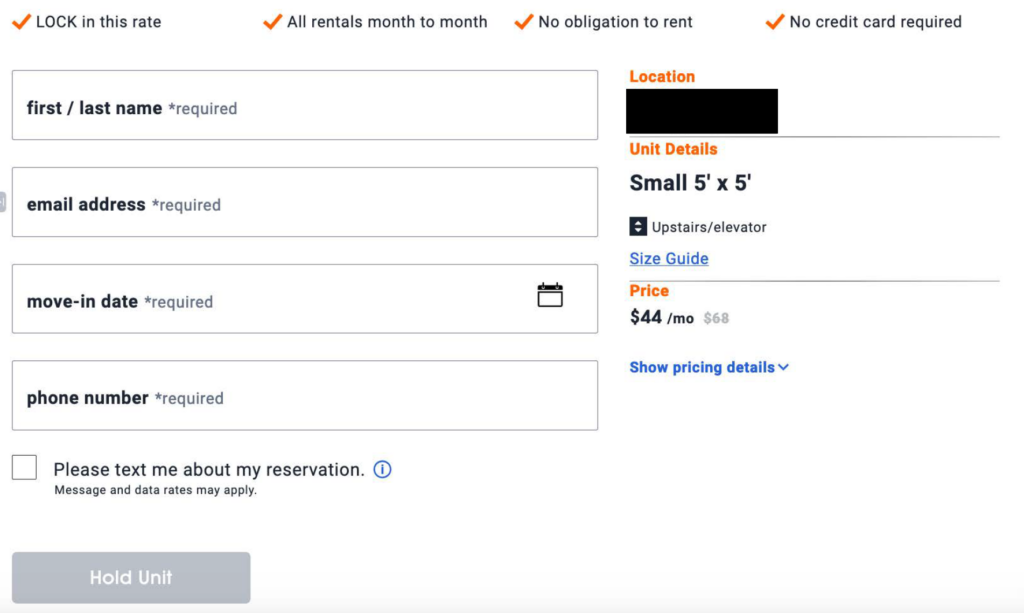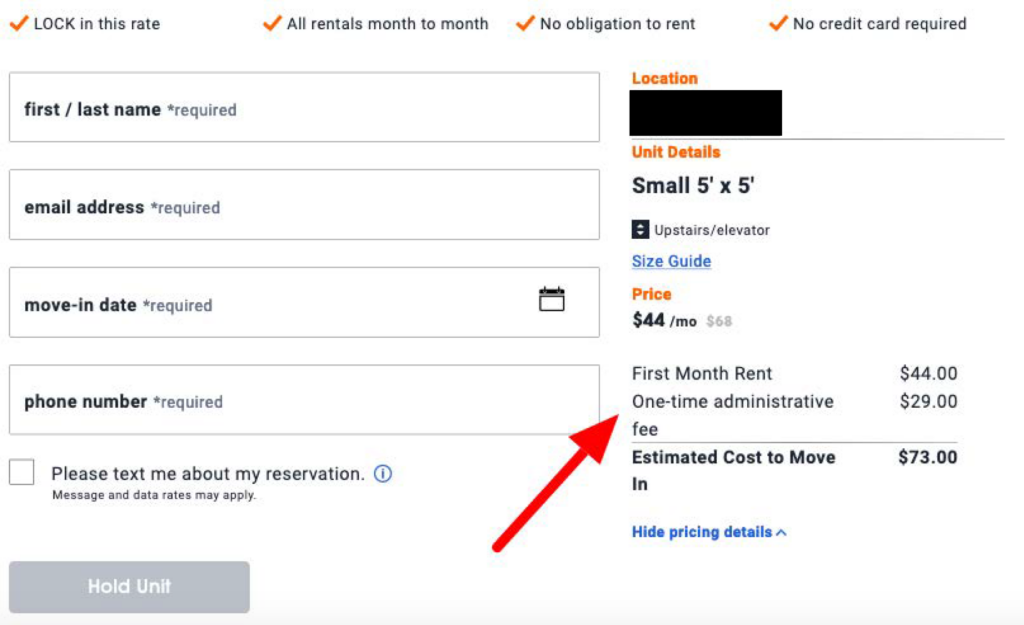
As Happy Gilmore would say, the price is wrong, Bob.
In this case, we’re referring to the prices Public Storage advertises on its website for its storage units, which were flagged by a TINA.org reader. Prices like these:
The advertised markdowns for online customers are enticing but, as we said, these prices are wrong. And you don’t find out why until after clicking “Hold Now.”
…and then clicking “Show pricing details” (which isn’t necessary to hold the unit).
Only then does Public Storage reveal its “One-time administrative fee” of $29, which, in this example, jacks up the advertised price by 66 percent. At which point you may feel the urge to burn your belongings rather than pay Public Storage to store them.
Perhaps that’s a little dramatic. But the point is Public Storage advertises one price and charges another. And requires that consumers click an inconspicuous dropdown link ambiguously labeled “Show pricing details” to see the company’s hidden fee, as they’re being rushed to make the reservation with the threat of “limited availability” and prompts to “LOCK in this rate.”
It’s also disconcerting that the price in the dropdown menu is referred to as “First Month Rent,” as opposed to, say, “Monthly Rate.” Will Second Month Rent be the same as First Month Rent, or higher?

In addition, Public Storage is running a promotion where customers pay $1 for their “first month rent.” But that also doesn’t include the administrative fee and other charges, according to the offer terms at the bottom of Public Storage’s website. Moreover, the offer is for new customers only, actual unit sizes may vary from “approximate size estimate” and reservations do not guarantee unit availability, the terms say.
TINA.org reached out to Public Storage for comment. Check back for updates.
Find more of our coverage on hidden fees here.
Our Ad Alerts are not just about false and deceptive marketing issues, but may also be about ads that, although not necessarily deceptive, should be viewed with caution. Ad Alerts can also be about single issues and may not include a comprehensive list of all marketing issues relating to the brand discussed.
You Might Be Interested In

Xfinity Home Internet and Mobile Promotion
It’s easier to rack up hidden fees than it is to cancel.

Taking the Shine Off Homeaglow’s ‘$19 Cleaning Service’
The bottom line? Prepare to pay more.

LeafFilter Gutter Guard: ‘Keeps You Off the Ladder’
Gutter cleaning is dirty and annoying. So is deceptive marketing.


